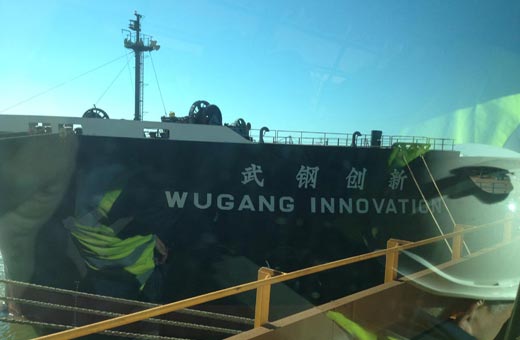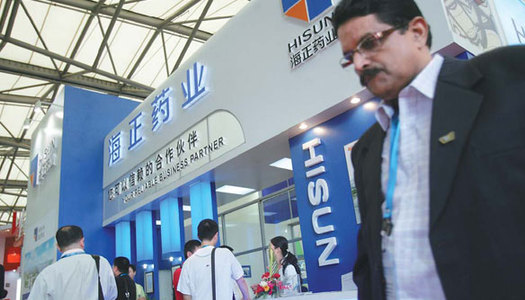
Chinese firms get help on the outside
Updated: 2013-05-21 07:06
|
 An HSBC Corp outlet in New York. The bank has set up 17 dedicated China desks around the world to provide information to Chinese companies planning overseas ventures. [Photo/Provided to China Daily]
|

HSBC bets big on tailor-made financial services for companies planning overseas ventures in Europe, report Cecily Liu and Zhang Chunyan in London
HSBC Corp, Europe's largest bank by market value, plans to offer more personalized solutions for Chinese companies planning overseas ventures, as part of its efforts to diversify revenue streams to push growth.
The global banking giant has already made a beginning in this regard by implementing a yuan cross-border trade settlement solution for a Chinese Fortune 500 company last month. It has also set up 17 dedicated China desks around the world to provide information on the local business and regulatory environments to the subsidiaries of Chinese companies planning overseas ventures.
"We want to be there whenever a company goes overseas," said Oliver Jones, head of HSBC UK's international team for corporate and commercial banking. Jones also supervises HSBC's UK China desk in corporate banking, headed by Neo Wang.
"Our China team is already in touch with several Chinese companies. Through the speedy transfer of knowledge across the HSBC network, we can ensure that our overseas China desks have the necessary background information to provide speedy and on-the-ground services for Chinese clients," Jones said.

Citing an example, he said that prior knowledge about a Chinese company's back office systems and internal policy toward foreign exchange hedging often comes in handy for the overseas subsidiaries, when they have to take speedy investment decisions.
He said that though HSBC UK has dedicated desks to help investors from markets such as the US, Canada, France, Germany, Australia and India, it is the China desk that is becoming increasingly important as Chinese investment in the UK is steadily growing.
Cross-border lending is still a challenging task for most of the global lenders as the inflow and outflow of yuan is regulated by the State Administration of Foreign Exchange, China's foreign exchange regulator, Jones said.
Despite these challenges, Jones' team recently worked with HSBC China to set up a cross-border lending structure for a Shenzhen-based manufacturer. "Our efforts helped facilitate the smooth flow of funds to the UK subsidiary from the cash-flush parent in China."
HSBC secured a standby letter of credit in renminbi for the funds in China and later helped set up a revolving credit facility of more than $10 million in the UK for the Chinese company, he said.
Cross-border lending through standby letter of credit first became possible in 2009, after the Chinese government started a pilot program to encourage the renminbi's internationalization. Before this policy change, Chinese companies wanting to invest overseas had to transfer the cash physically out of China to their overseas subsidiaries. In comparison, lending through standby letter of credit allows the parent company to keep the cash within China.
Jones said cross-border lending is often used in situations where the subsidiary needs the cash for operational purposes over a period, rather than using it for a one-off investment.
Related Links
China HSBC April services PMI falls to lowest in nearly 2 years
China's manufacturing growth slows: HSBC
Bankcomm, HSBC partner on cross-border RMB business
HSBC China PMI rises on solid domestic demand
Harder push likely on yuan, says HSBC
HSBC forecasts brighter year in China
China HSBC PMI recedes from two-year high to 50.4
- BYD exports three electric cars to Thailand
- Grid gets first jolt of residential solar power
- US now largest buyer of China's exports
- China's outbound M&As on the rise
- Tobacco control may entail price, tax rises
- Quanzhou becomes pilot financial reform zone
- New automobiles shine at Geneva Motor Show
- World's longest high-speed rail 'on track'
- Jiugui Liquor involved in plasticizer scandal again
- Accident reignites school bus safety concerns
- China to revise labor law
- Trademark registration under scrutiny
- Dinner ban takes toll on liquor firms
- CIC tables bid for London's Chiswick Park
- Property buyers eye overseas market
- Call for law to protect personal information
- China to cut train ticket prices
- Christmas business
- Solar industry to get jolt from new policies
- KFC chicken under spotlight














